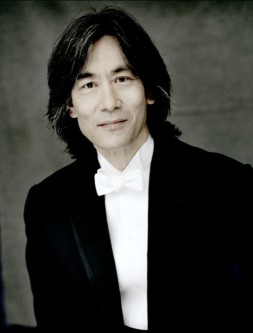 Switzerland Wagner, Hefti, Liszt, Berlioz: Montreal Symphony Orchestra, Marc-André Hamelin (piano), Kent Nagano (conductor), Tonhalle, Zurich (JR) 11.3.14
Switzerland Wagner, Hefti, Liszt, Berlioz: Montreal Symphony Orchestra, Marc-André Hamelin (piano), Kent Nagano (conductor), Tonhalle, Zurich (JR) 11.3.14

Photo (c) Migros
Wagner: Parsifal Prelude to Act I
Hefti: Adagio (European première)
Liszt: Piano Concerto No. 2
Berlioz: Symphonie Fantastique
The Montreal Symphony are on an extensive tour in Europe with their Chief Conductor Kent Nagano. They started their tour with this concert in Zurich and move on to Berne, Geneva, Vienna, Madrid, Oviedo, Cologne, Essen and finally, Munich. The hall was full to the rafters with doors opened to accommodate overspill seats in the corridors.
The Swiss concerts are promoted by Swiss retailer Migros whose founder prescribed that a percentage of the group’s profits be given to the arts. Migros have therefore become the primary sponsor of visiting orchestras in Switzerland. One of their aims is to assist Swiss instrumentalists and composers to find a stage, and in this concert it was the turn of young Swiss composer, David Hefti.
First though we were treated to a dose of Wagner. The Parsifal prelude is marked “sehr langsam”; Nagano could not have played it any slower. Some of the players did not seem to know where one note ended and the next began. Nagano’s baton technique, holding it in his clenched left hand but not using it at all, did not help dramatic tension. The orchestra sounded fine, opulent at times, and by the interval we realized that this had been the best music of the first half of the concert.
Wagner is, I admit, a hard act to follow. Hefti’s work is based on influences from the SecondVienneseSchool. He says his work is a series of citations from the other works in the concert, but one had to listen carefully. I failed that test. His piece was as slow as the Parsifal prelude, not unpleasant on the ear, not irritatingly atonal, but rather directionless. Applause was polite: the composer was, of course, present.
The Liszt concerto is a short, but problematic work; it is one single lengthy movement, divided into six sections. It has been attacked as vulgar and structurally ambiguous, short on melody, and I tend to agree. A pity, as Hamelin, as one would expect, was on top of it technically, nothing that Liszt threw in his path caused him to raise sweat, from tub-thumping lower notes to twinkling high notes, from trills to runs the length of the keyboard. The Principal cellist also made a fine contribution.
Irritatingly the orchestra had to wait, after the interval, for the Canadian bank reception to finish and latecomers to return noisily to their seats before Nagano could launch the Symphonie Fantastique.
The work really only came to life about half-way through. The “Rêveries” were not dreamy and drug-infused enough, a mite pedestrian. There were however many interesting touches and a flourishing finish. “Un bal” was notable for its shimmering strings and the festive glitter of cascading harps. The movement floated effortlessly to its final whirlwind. The “Scène au champs” was suitably weighty, with a fine contribution from the cellos. Nagano, ever willowy and debonair, seemed curiously unengaged. The last two movements do always steal the show and so it was here: the “March to the scaffold” stressed the grotesque (credit to the babbling bassoons and the strings’ staccato, a tremendous effect resembling the fall of brittle hailstones). The “Witches Sabbath” was appropriately savage and raucous: the final frenzied bars were superlative. The ppp horn was however almost completely inaudible and the bells on the balcony rather too close for comfort. Nagano had obviously not had the time to check out the acoustics of the hall.
The orchestra gave an unnecessarily generous encore: Bolero. Encores in my view should be short and sweet, whether rumbustious or lyrical. Though at the end the smattering of Canadians in the audience rose to their feet, I felt this repetitive encore detracted from a generally fine showing from this fine orchestra.
John Rhodes